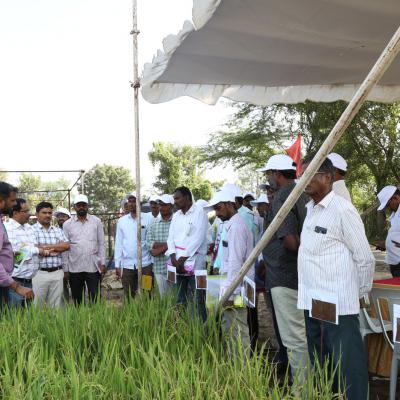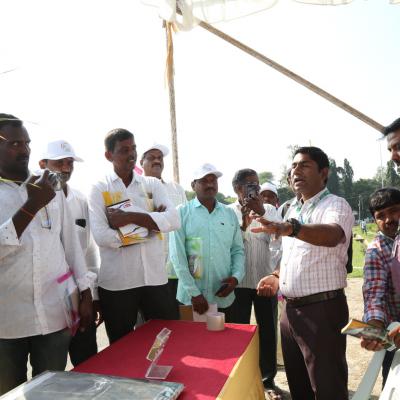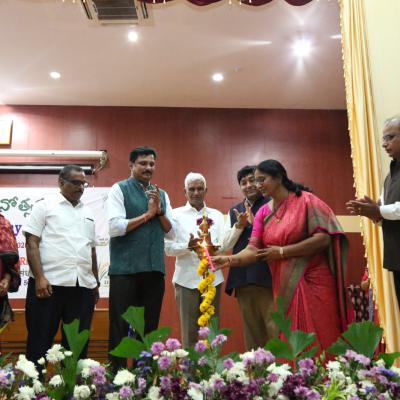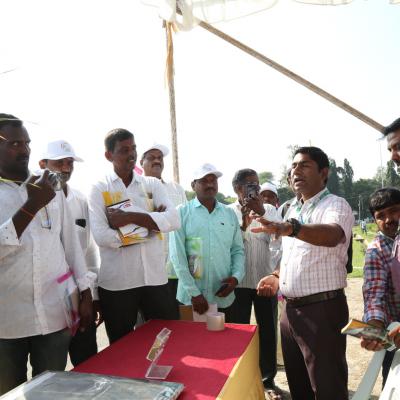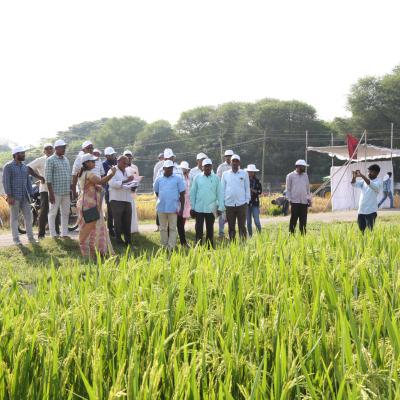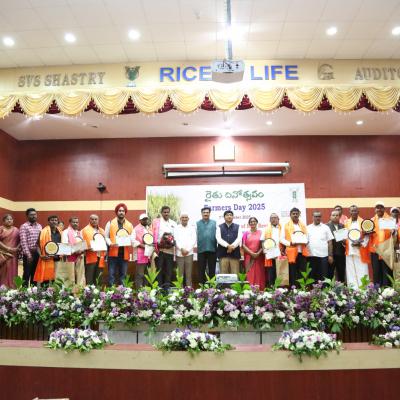Ecological engineering with bund crops for enhancing biological control and monetary returns
Technology Profile
Ecological engineering is the modification of the environment to enhance biological control for sustainable pest management. It involves habitat management for enhancing natural enemy survival and action through increasing floral diversity on rice field bunds. Here we advocate growing a bund crop, application of organic manures and proper water management for management of hoppers. The bund crop may be a vegetable, fodder, pulse or flower crop. Some of the crops tested at IIRR and recommended are African marigold, Blanket flower, Bhendi, Cowpea, Pilipesara, Sun hemp, Coriander, Dill, Fennel and Til/ Sesame. Of these marigold has great potential for Telangana region.
Context
Need: The major chunk of inputs goes in managing pests and diseases of crops. Farmers resort to multiple sprays to manage a single pest which causes many problems and increases cost of cultivation. Sometimes due to resistance development and resurgence of pests outbreaks occur leading to total crop losses.
Habitat management techniques keep pest levels low, increase natural biological control and bring down the number of insecticide sprays.
Areas/ Districts in Telangana and Andhra Pradesh where this gap exists: Rice growing regions of Nalgonda district and major districts of Andhra Pradesh have hopper outbreaks.
Empirical Evidences
Field testing results
The technology has been tested in multi-locations in research farms across the country and have been found successful in increasing natural enemies and bring down pest population. It has also been tested in farmers fields at Gangavathi Karnataka and in villages of Nalgonda, Telangana.
Demonstration yields and incomes
On farm field demonstrations in 10 acres of farmers’ fields in Nalgonda, Telangana over two years and four seasons have shown that bund crops can be grown successfully in rice fields. Marigold especially has been found to give good monetary returns when grown on rice bunds. These flowers are used for many purposes like religious rituals, parties, functions and many festivals. The demand for Marigold flowers at the time Dashara and Diwali and Ugadi festivals is very high. Hence retail market price may reach up to 100 to 150 rupees/kg of marigold flowers. Any crop grown on bunds will give multiple benefits such as (i) Increased parasitisation / predation by natural enemies (ii)Extra monetary benefits from the bund crop (iii) Enhancement of soil fertility (iv) Suppression of weeds on bunds.

Practical Utility/ Scalability
The average length of rice bunds per acre is 300 m. We require 100 seedlings to plant an acre of bunds, the cost being Rs. 3500. Calculating at 4 kg per plant, the yield from an acre is 4000 kg. At an average selling price of Rs. 25 per kg, a farmer can get Rs 100000 per acre. Bhendi also fetches good returns while pulses provide the much needed protein requirements of the farmers’ household. The technology has also been demonstrated to other farmers through field days extension brochures which indicated an interest in adopting the technology.
Ecological engineering consists of simple cultural management which can be easily adopted by farmers. Creating local farmer’s market unions can help market the produce and increase the area sown with marigold as bund crop tremendously.


